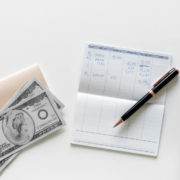Buying Assets After Receiving Personal Loans For Debt Consolidation
Overwhelmed by debt? Looking for a long-term solution? For those with good credit, personal debt consolidation loans could be excellent options. But what does debt consolidation mean and how does it affect your purchasing power? If you want debt consolidation advice, Liberty Debt Relief is here to break it down for you. Read this before attempting to buy a home or make any other large purchase after debt consolidation.
What is Debt Consolidation?
This type of loan typically offers a lower interest rate and a single monthly payment to combine several unsecured debts, such as payday loans, credit cards, or medical bills. They are often a great option for those with good credit but a few high-interest loans. Just to reiterate, in order for this method to be effective, the new loan would have to offer better terms than the previous loans.
Debt consolidation offers numerous benefits. First, a they could provide a lower interest rate than your current credit card debt. Second, a simplified payment structure because you are now making one payment instead of keeping track of several payments. Debt consolidation can also allow you to stretch out payments over a longer period of time, providing relief in your monthly obligation. But, beware, stretching out the loan term could lead you to pay more over the life of the loan, even with a lower interest loan. Be sure to compare total payoff amounts for all of your debts and compare them to the consolidated options before making a decision. If your goal is to get out of debt as quickly as possible and at the lowest cost, a personal loan for debt consolidation may or may not be the answer.
What Happens After Debt Consolidation?
When consolidating debt, the best option is the one that does the least damage to your credit rating while providing genuine financial relief. Your purchasing power after debt consolidation depends on several factors, including your credit score before you started the process and your performance on the new loan. If your score is already low, taking out a loan to refinance others might damage your credit further, making it more difficult to obtain financing for a home, car, or investment afterwards.
However, if your credit is strong before consolidation, your purchasing power may not be significantly affected. As with all loans, your ability to make on-time payments on your new, consolidated loan will certainly affect your credit. It’s important to remain in good standing on all your loans to avoid negative credit impact.
Things to Consider
Whether or not you’ve recently used personal loans for debt consolidation, there are several factors to consider:
Do I Need to Make this Purchase?
Sounds pretty simplistic but this is a pretty big deal. Whether it’s a house, car, or any other asset, you should be honest with yourself about whether it’s in your best interests to purchase this “asset.” In the months following debt consolidation, it might be more prudent to focus on paying off existing debt rather than accumulating more debt. If you’ve recently used personal loans for debt consolidation, that might indicate a less-than-stellar financial situation. Adding debt can severely affect your daily life, making it more difficult to pay off in the long run.
What can I really Afford?
This is a question many potential asset-buyers struggle with. Your dream home, stock, business, or vehicle may or may not be comfortably within your reach, but being honest about your financial position is critical to making the choice that’s best for you. Large purchases can quickly become financial burdens if you do not have the means to maintain them. You might consider finding a personal financial advisor to help you really figure out your financial health and make sense of the dollars and cents.
What’s My Credit Score?
This pesky little number will determine how much banks are willing to lend you and at what interest rate. If your credit score is so low that you are facing low borrowing power and extremely high interest rates, it may not be the time to make that purchase.
What is the True Cost?
Often times, purchasing an asset comes with expenses in addition to the advertised price. Between taxes, fees, and insurance, the true cost can be tens of thousands of dollars more than the sticker price. Before jumping into a large financial obligation, take the time to figure out every single expense and whether or not you can truly afford this commitment.
Debt-to-Income Ratio
Banks or private lending companies often calculate the ratio of your monthly expenses to your monthly income to determine your ability to afford a loan. Keeping this number as low as possible will show them that you can comfortably afford to take on new debt.
Liberty Debt Relief
Need some more help understanding personal loans for debt consolidation? Still not sure what happens after debt consolidation? Contact Liberty Debt Relief for expert debt consolidation advice. We have the knowledge and experience to help you regain your financial freedom. Whether you are looking to negotiate a debt settlement or need a game plan for debt consolidation, Liberty Debt Relief can help you develop a customized financial plan to meet your exact needs and set you on the path to success.














Leave a Reply
Want to join the discussion?Feel free to contribute!